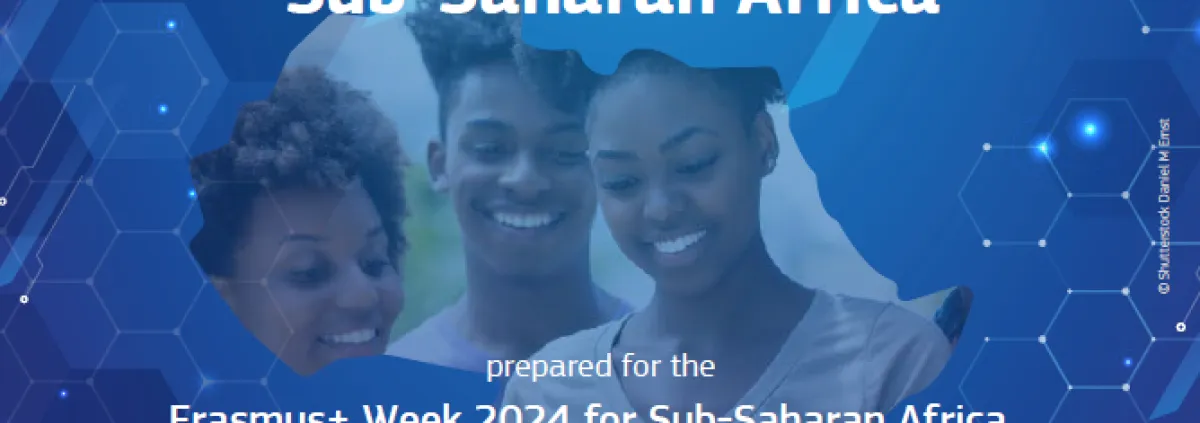The European Commission has just published a new compendium of digital transformation projects in Sub-Saharan Africa supported by Erasmus+.
This publication provides a range of inspiring examples of how educational institutions are using Erasmus+ in Africa to prepare for the digital transition, and to harness the full potential of digital technology and techniques to boost education, what it can do, and who it can reach.
It also gives wider overview of the potential of Erasmus+ and the worldwide opportunities it offers. The programme funds partnerships between Europe and Africa (as one of a range of regions world-wide) to share knowledge and good practice among students and staff, but above all to develop links for the benefit of the education sector.
People can benefit from Erasmus+ on two levels – either by taking part in new projects, or by learning from the results and outputs of existing projects on the Erasmus+ Project Results Platform. Erasmus+ projects are selected each year in annual Calls for Proposals.
This publication is not a scientific study on the topic but draws on existing project descriptions on the Platform. The text is based on the project’s own
description of its objectives and partners. In today’s world, all education involves a certain amount of digital technology or techniques. It therefore focuses on projects which specifically address the challenges of the digital transformation.
It has been prepared specifically for a meeting in Abidjan in June 2024. This is the first in a series of three Erasmus+ Weeks in 2024 which will look at Erasmus+ cooperation – particularly on digital themes – in Africa, Latin America & Caribbean, and Asia, the Middle East and the Pacific.
Find out more about Erasmus+ Weeks on the ENFP platform.


Please log in or sign up to comment.